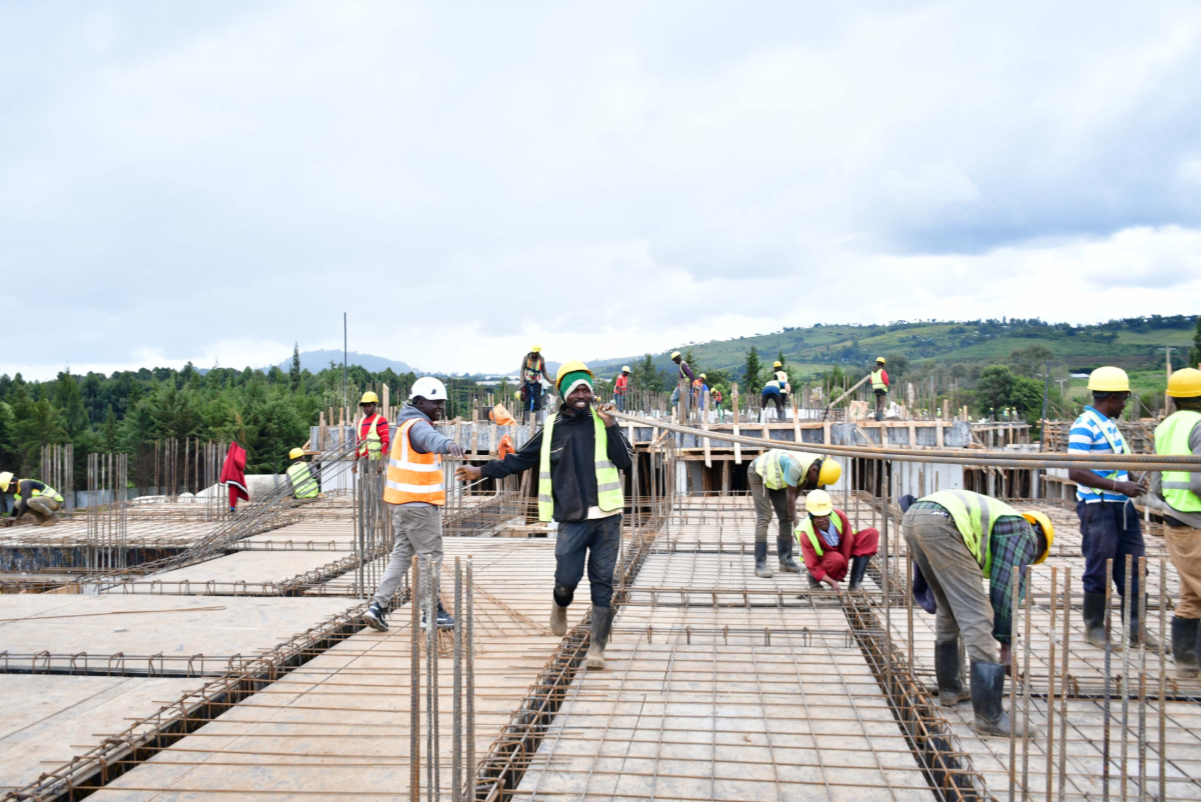
 Affordable
Housing
Project/FILE
Affordable
Housing
Project/FILE
The government has money to pay contractors in the affordable housing programmes, State Department for Housing and Urban Development now says, as it calls on them to deliver the projects time.
This, even as it warns against parting with bribes to get their payment processed, with PS Charles Hinga saying the process should be transparent.
Hinga has also challenged contactors to pay their suppliers including manufacturers and workers on time, to ensure construction works across the different projects in the country don’t stall, while contributing to cash-flow in the markets and households.
Speaking during the the eighth edition of construction networking Nairobi which brought together the government and building and construction sector players to discuss the affordable housing programme, Hinga affirmed the government’s commitment to address the country’s housing deficit.
World Bank in its latest pulse report puts Kenya’s housing deficit at 1.8 million.
“I have signed off certificates worth Sh23 billion…that will be circulating in this economy in the next few days. So, I want to give you my undertaking that we will pay you on time going forward,” said Hinga.
“There is money for everybody. When I pay you, pay your suppliers in time, pay your taxes. I really wish you can do that. It is just the right thing to do so money is not a problem. Let us sole this housing problem together.”
His affirmation comes amid a rise in collections under the Housing Levy which has fastened construction of the affordable houses across the country.
In the financial year 2024-25, the levy netted Sh73.2 billion, exceeding the Sh63.2 billion target by Sh10 billion. This was an increase from Sh54.2 billion the previous year. The levy was initially challenged in court but was made legal by the Affordable Housing Act, 2024.
The Affordable Housing Program (AHP) is among key pillars of the government’s development agenda under the Bottom-Up Economic Transformation Agenda (BETA).
Currently, there are over 214,000 affordable housing units under construction nationwide according to the state department, with over 330,000 jobs created since inception in 2022.
The government’s target is one one million jobs across the breadth of the programme.The objective is to deliver 200,000 housing units annually, thereby bridging the housing deficit while stimulating local economies and spurring manufacturing in the housing economic value chain.
To achieve this, the government is working almost exclusively with local (Kenyan) contractors. It has also allocated over Sh11 billion for Jua Kali groups and MSMEs to produce ringfenced goods and services, including steel doors, windows, balustrades, tiling, joinery and landscaping services, for each affordable housing project.
The government is finalising ‘Kandarasi Mtaani’, a community contracting programme to incorporate local communities in the implementation of the AHP.
The programme will facilitate the development of boundary walls, internal roads within the affordable housing sites, wastewater treatment plans, landscaping and site-specific climate mitigation projects for the communities. About 21 per cent of on-site labor is provided by women.
“Plans are at an advanced stage to absorb 7,000 intern graduates into the AHP, working all along the housing economic value chain, from land identification to project management and estate management. We plan to have over 10,000 interns by early 2026,” Hinga said.
The affordable housing programme, which is meant to help address the housing shortage in the country where nearly 61 per cent of urban households live in slums, has this year been critical in driving the construction sector and its contribution to economic growth.
Latest Kenya National Bureau of Statistics data indicates construction sector grew by 5.7 per cent in the second quarter of 2025, compared to a 3.7 per cent contraction in the second quarter of 2024. The sector’s performance was manifest in cement consumption and import of construction materials.
During the period, cement consumption increased by 23.9 per cent to stand at 2,424.4 thousand metric tonnes from 1,957.1 thousand metric tonnes in the corresponding period of 2024.
Similarly, the quantity of imported bitumen increased to 22,659.3 metric tonnes, up from 15,566.2 metric tonnes imported during the corresponding quarter of 2024.
“Iron and steel imports increased to stand at 526,606 metric tonnes in the quarter under review compared to 222,112 metric tonnes imported in a similar quarter of 2024,” KBNS notes.
Credit extended to enterprises in the construction sector grew by 21.7 per cent to stand at Sh159.6 billion as at June 2025, compared to Sh131.1 billion same period in 2024.



![[PHOTOS] Ruto applauds near-completion of 220-unit Vihiga Housing Project](/_next/image?url=https%3A%2F%2Fcdn.radioafrica.digital%2Fimage%2F2025%2F10%2F859baf9c-09a3-4971-9a1b-a4c45ee12436.jpg&w=3840&q=100)











